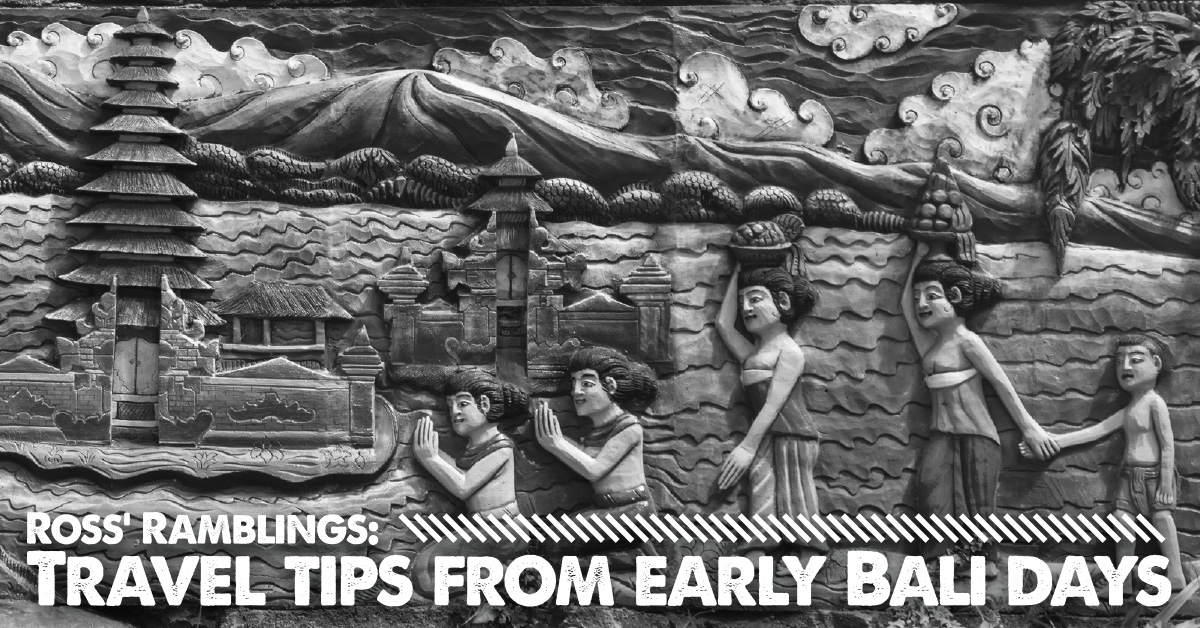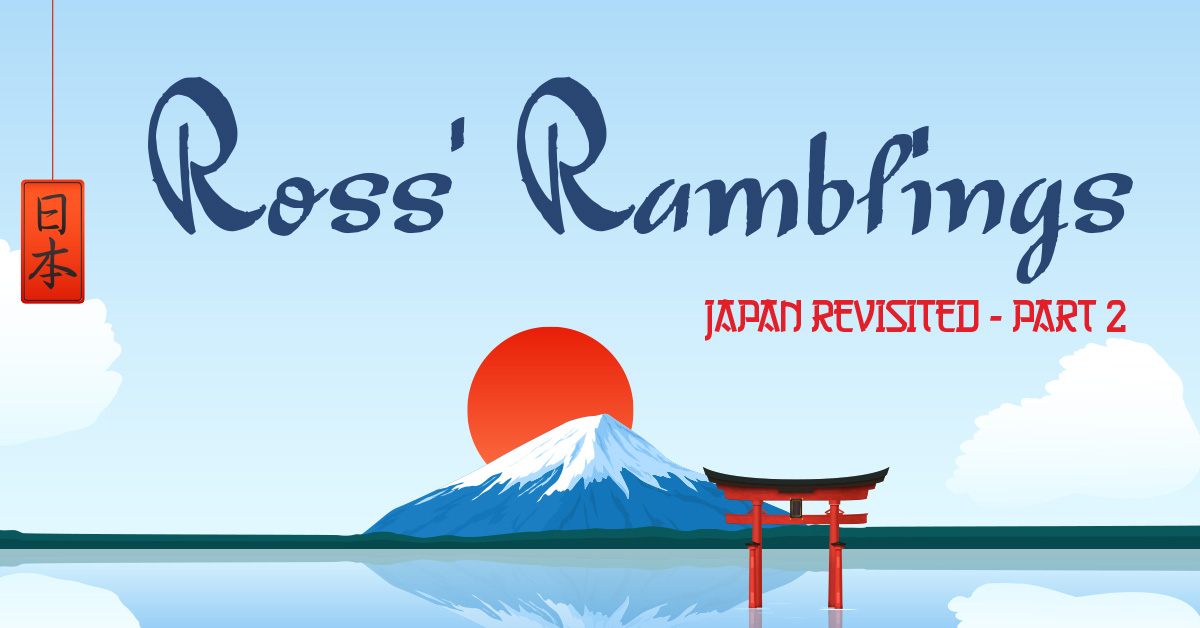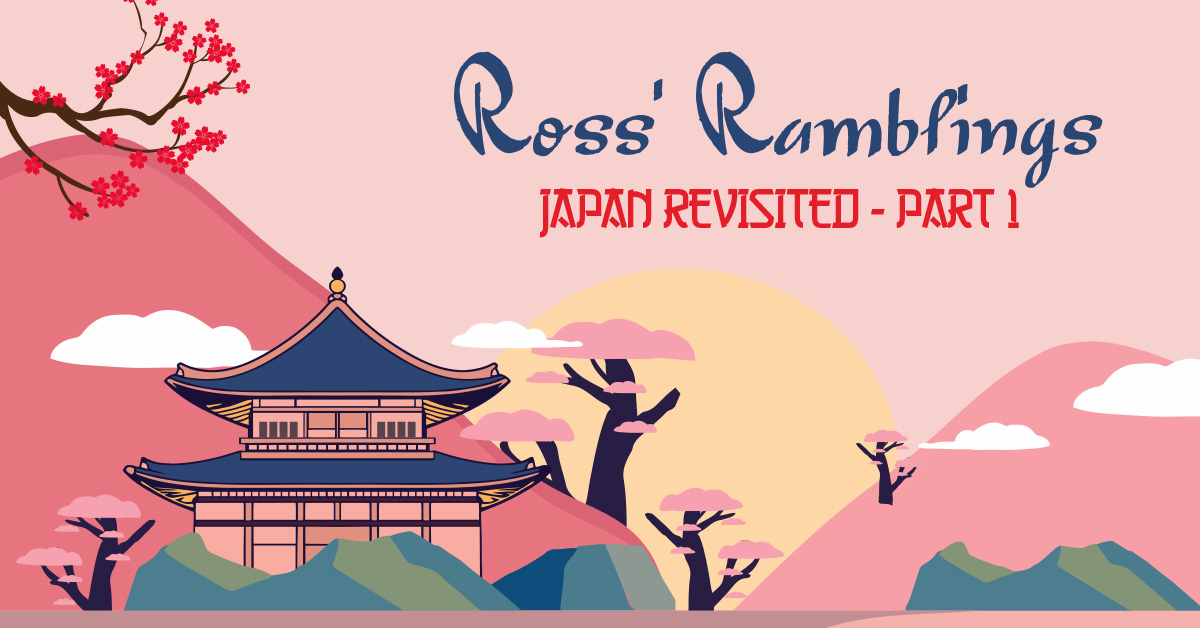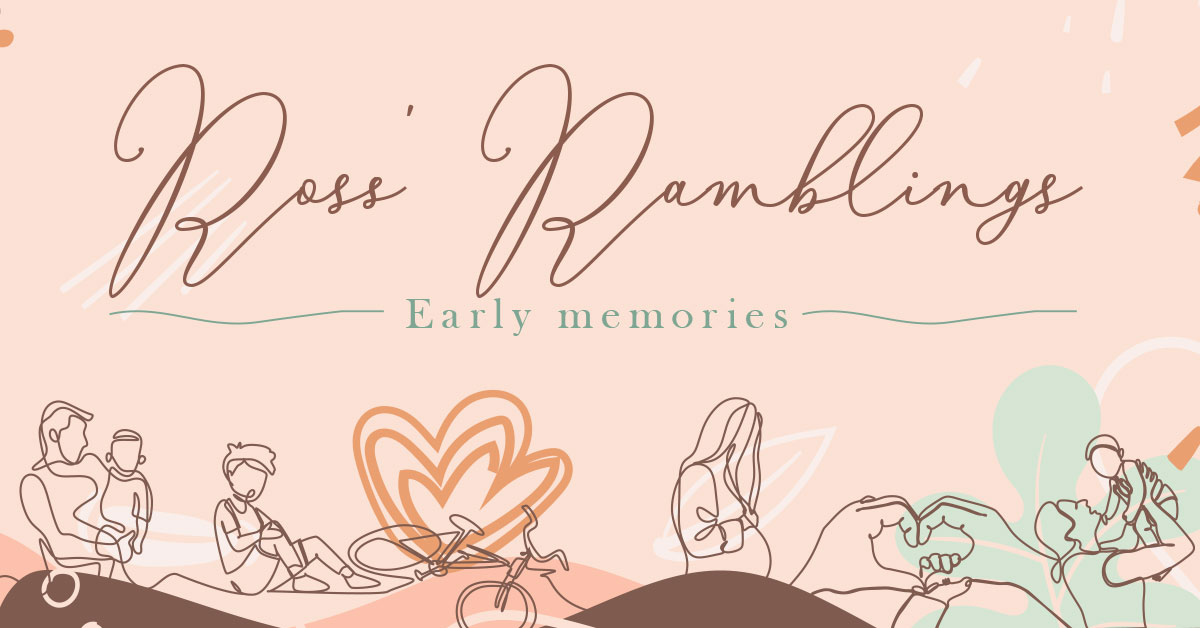
Ross’ Ramblings – Travel tips from early Bali days
The first time I left NZ was in 1973, off on the required OE, bound for Southeast Asia. Boy, was I excited. During the flight I sat next to an effeminate guy. We chatted away and before touching down in Bali I woke up and realised my sleeping head had been resting on his shoulder. I apologised profusely but he was very nice and patted me on the leg and suggested I go and stay with him in a flash resort at Nusa Dua. I politely lied to him that I already had accommodation booked at Kuta Beach, and thanked him for his kind offer, despite the fact I was sure he had ulterior motives. Tip number 1: have some plausible stories ready for unforeseen situations.





